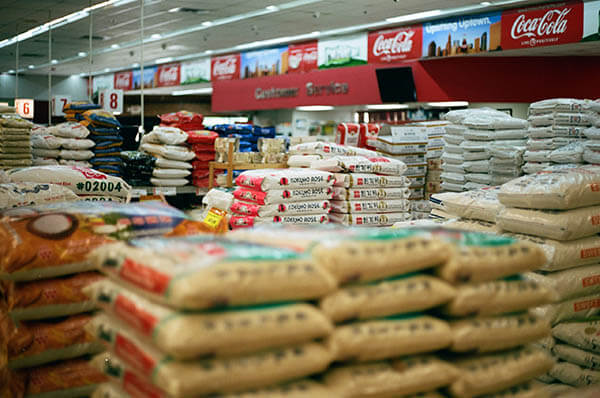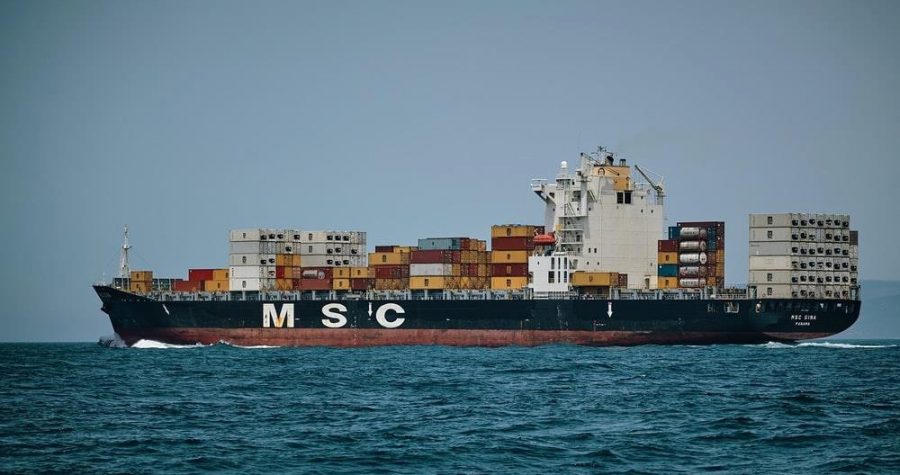How to insure my products
The largest trade corporations were not built in a day – you need to start small. There is always a risk factor when you commence business activities, and you don’t want to lose the empire you had built whether it’s small or large. You will need appropriate coverage for the unforeseen fails over the course, such as theft and fire hazards. When you are importing or exporting any commodities, it should cover the damages of those products if reported by the client.
In some countries, it is required by the state to get the organizational assets insured. However, in other nations, it is not the law to have Insurance for your products. The developing countries’ businessmen don’t opt for a proper insurance plan; thus often suffer miserably in case of accidents. Whereas, the developed nations abide by the insurance regulations more promptly. The premium seems like a drop in the ocean when the insurance companies cover a considerable loss. Before diving into the Product insurance niche, it is crucial first to understand the business-related types of insurances briefly.

There are many distinct insurance types when it comes to business-related coverage. It starts with property insurance, which includes your office, factory area, or the selling outlets. Property insurance covers accidents like fire, short circuit, water damage, and several other mishaps. Vehicular insurances, the second type, is where the transporting trucks and cars are protected against God-forsaken road accident. The third insurance category is related to the employees, and it is called Compensation insurance for workers. Another classification of Indemnity is Professional Liability Insurance. This part is a mistake cover-up where your client was harmed in any way.
An interesting Insurance clause is Business Interruption Insurance amidst the crisis. This fragment is suited best for disasters like COVID19. If a company had this insurance plan and suffered from closure or needs rebuilding after the pandemic, the income loss may be covered. It could be included in the overall comprehensive Insurance Package of an organization. Furthermore, the insurance niche related to the products is interpreted as Product Liability Insurance
Product Liability Insurances provides treatment to the claims of third parties, that is to say, the damage reported by consumers. For instance, if your client used your merchandise and suffered from bodily harm, property loss, sickness or death. The food industry often suffers from problematic outcomes associated with food products. If your customer ate the ketchup sold by your company, and it causes diarrhea or vomiting, you would be held responsible for the consequences. Usually, the insurance providers also cover the legal proceedings related to the issue. There is always risk involved with your products having adverse effects on the client, and a third-party can raise complaints or even sue your organization.
Manufacturing fault or design disarray are the common grounds for the need for Insurance. If you left out any required information on the packaging, or the safety warnings were not correct, you can face the penalties. Any small business can purchase an insurance policy, but they should be covering legal costs too.
Three actions to maintain your position in international markets
A research conducted by Sandhya Keelery suggests that Indian Agribusiness has seen a burgeoning rise in recent years and foresaw a 350 billion USD business in 2022. Gone are the days when only farming was considered the Agricultural industry. In today’s world, Chemicals, Crop distribution, Machinery, Seeding, Retail sales and many more domains are all part of international exchanges.

Do you wish to expand your consumer base? You need to execute an efficient global strategy to achieve a higher amount of business and, consequently, maximizing your profit ratio. We have listed what international strategy to adopt for your business below:
Table of Contents
International Events
Seminars and Exhibitions take place throughout the year. Therefore, companies have to participate in it to maintain their visibility, contact with potential clients and their knowledge of the market. These dealings are crucial for establishing connections and build relations. The relationship you create with vendors, buyers, even competitors in those meetings, will scale up your business in the international market. The conferences also provide you with a chance to display your products as well. Seeds distribution, for example, is promoted with a display counter showcasing your products in the symposia. You get to attend sessions with consultants and enrol in training workshops as well. The atmosphere broadens your horizons and makes you think out of the box. The build-up to your company’s profile can play a significant role in your quest.
After-Sale Services:
You could have all the technological advancements in your pocket, the best organic techniques in your resume, but it could all go wasted. You need to retain your customers! Your buyers need to keep coming back for your products, and the best way to ensure the retention of your clients is After-Sale Services. The problem with selling internationally is that you are mostly dealing through online communication means, and the handling of customer complaints is not efficient. You could set up and offshore call center, or invest in a local presence, be it through the office or a service center. If you are dealing with Agri-Machinery, and your client faces a mechanical hazard, your prompt service will ensure the customer will find you again.
Data:
Information is the secret ingredient. Developed countries’ individuals need transparency and access to information. When you are marketing your product or selling it, you need to provide all the required information. If your business is food-related, you need to let out the info about calories, vitamins, minerals, expiration, and origin, etc. Furthermore, you must maintain data of your current clients or potential customers. You can do this by creating an Email Subscription list, Telesales, and Memberships. Your record should contain the contact information, customer profile, purchase history with you. Harness the data and use it for introducing a new product or upselling your real commodity.
All in all, keeping your foot on Data, Services, and showcasing through the professional channel will make all your dreams come to life.
Sourcing: the best strategies to find the right suppliers

Table of Contents
The right supplier is to the business what a better half is to her spouse. It is the right-bone of your corporation, and finding the best supplier is as tricky as it gets. A company needs to identify the best strategies to source the right suppliers in a way aligned with the company’s goals. Therefore, the first preliminary step to strategize the procurement process is to identify the specific needs of your organization. Take budget for an example; if you do not plan to find a high-priced supplier, it will short-list the available vendors automatically. Thus, the recognition of organization-specific demands is crucial. Now let us look at how to source your supplier with the top strategies.
Finding a competent supplier is a make or break situation; hence many companies have a procurement department for the job. If you are a small company or don’t have a procurer, the best practice would be to equip your human intuition with focused and systematic criteria. These measures will include Delivery methods, Payment conditions, Time management, assurance of quality, and mutual references. If you go searching for a supplier without an excellent working, you will search for a needle in the haystack. Reviewing hundreds of suppliers without objectivity would be over-kill and efforts that are not the requirements of the task.
Bids:
Procuring the quality suppliers could be either a bull’s eye or a bullet to the head. The easiest way to start the process is by sending out a call for bids, where you gather all the quotations and proposals. You could develop a questionnaire and ask the suppliers the services you require. To elaborate, you need to ask about the delivery schedule further, quality standards, work out the payment methods, and their SWOT. This survey will help you identify and isolate the desired pool of suppliers, which will be easy to choose. After collecting results, you could summarize the scope of services rendered, match them with your needs.
You need to assess all the bids by evaluating the value they could bring to your business. The idea of sourcing the right supplier is to bring value to the overall organization. Make sure that the suppliers answer all of the questions for your better understanding of the services they will provide accordingly. You could also conduct interviews where a panel of your management can discuss the services with the short-listed vendors.
Performance:
You will need to analyze the supplier’s capacity. Firstly, ask for the references and reviews of their previous buyers. Then decide whether they match your requirements and their capability insured to deliver on time. The best strategy is to chart out possible outcomes and estimate the traders’ operational capacity. While on-job, you should arrange performance appraisals and treat them as one of your own. In addition, the supplier’s performance needs to match the efforts he will be putting in.
Techniques:
It is useful to research on their delivery techniques and the level of technology they use. Make sure the supplier has the necessary licensing and paper works. These strategies will help you nail the dilemma of sourcing a supplier, which proves best for your company.
How to choose freight solutions for export?
Exports business could turn tricky if you don’t get your shipments right, and things could go south quickly. You should choose the appropriate freight solution for trading internationally by considering the following tips.
Table of Contents
Prepare well
When you visit freight forwarder, and you have no homework with you, it will waste a lot of time and effort. You need to identify your objectives and research your industry niche. Decide which form of transportation and the size of the shipment you are going to require. You should chart out the job-specific services that your task demands. You must research the export treaties and other obligations as are necessary for your exporting business. Also, verify if the freight forwarder is authentic and registered with the relevant organizations. A company should always plan the required speed of delivery and cost of service, including the options of rail, sea, roads, and air.
Consider your options
There are many factors when transporting merchandise internationally. Freight rates, or the infrastructure costs like warehouses and the way-fare, play the deciding factor. Price impacts your decision, but one should not always go for the cheapest possible option, instead find value for money. The face-price might be more affordable, but when all the additional services, some of which are essential, are considered, then the process might be expensive. You should not fall for the asking price, and due research is what you must conduct, and this is how you choose freight solutions for export.

Arranging the right documents using a software
Many software is available in the market to do this task for you. When you need to confirm whether you have arranged all the necessary documents and those are typo-free, you can use the digital tools to save time. These apps/tools also enable you to email directly from the interface. Screening the package against the export regulations in place is possible as well. It would help you avoid the penalties. Using computer tools for exports is an excellent strategy. If you are using software for the surface work, you will choose the freight solution without much trouble and lesser costs.
The reputation of the freight service
Use your corporate network to gain knowledge of the reputation the freight service provider possesses. You could check their website for reviews, but it is always best to use your reference to conduct the research. Once you have determined that the transporter has the right reputation in the market, you could decide easily. The legitimate freight solution company would be able to provide you testimonies from their respected clientele. Additionally, their licensing documents and registration certificates could guide you as well.
Choose one with experience in your field
The freight solution, you are going to choose, needs to be professional and expert in handling the goods of your business. The food industry, for instance, could be a naïve field for the general shipment services. The products are perishable and delicate, which would require a skilful shipment. Take a look at the freight solutions your competitors are using. Best of luck!





